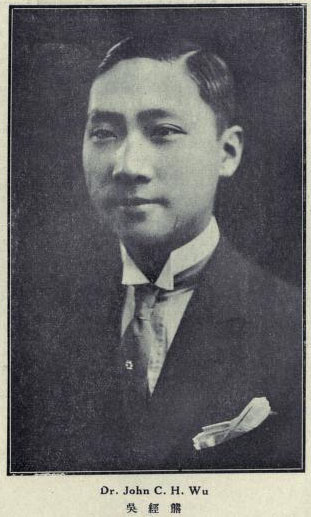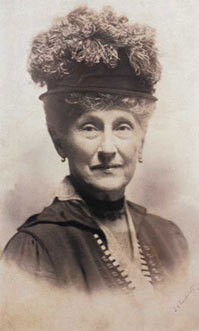
Daytona Beach, or simply Daytona, is a coastal resort city in east-central Florida. Located on the eastern edge of Volusia County near the Atlantic coastline, its population was 72,647 at the 2020 census. Daytona Beach is approximately 42 miles (67.6 km) northeast of Orlando, 90 miles (144.8 km) southeast of Jacksonville, and 231 miles (371.8 km) northwest of Miami. It is part of the Deltona–Daytona Beach–Ormond Beach metropolitan area which has a population of about 600,000 and is also a principal city of the Fun Coast region of Florida.

DeLand is a city in and the county seat of Volusia County, Florida, United States. The city sits approximately 34 miles (55 km) north of the central business district of Orlando, and approximately 23 miles (37 km) west of the central business district of Daytona Beach. As of the 2020 U.S. census, the population was 37,351. It is a part of the Deltona–Daytona Beach–Ormond Beach metropolitan area, which was home to 590,289 people as of the 2010 census.

The National American Woman Suffrage Association (NAWSA) was an organization formed on February 18, 1890, to advocate in favor of women's suffrage in the United States. It was created by the merger of two existing organizations, the National Woman Suffrage Association (NWSA) and the American Woman Suffrage Association (AWSA). Its membership, which was about seven thousand at the time it was formed, eventually increased to two million, making it the largest voluntary organization in the nation. It played a pivotal role in the passing of the Nineteenth Amendment to the United States Constitution, which in 1920 guaranteed women's right to vote.
Ernest Shurtleff Holmes was an American New Thought writer, teacher, and leader. He was the founder of a spiritual movement known as Religious Science, part of the greater New Thought movement, whose spiritual philosophy is known as "The Science of Mind." He was the author of The Science of Mind and numerous other metaphysical books, and the founder of Science of Mind magazine, in continuous publication since 1927. His books remain in print, and the principles he taught as "Science of Mind" have inspired and influenced many generations of metaphysical students and teachers. Holmes had previously studied another New Thought teaching, Divine Science, and was an ordained Divine Science Minister. His influence beyond New Thought can be seen in the self-help movement.

Mary Jane McLeod Bethune was an American educator, philanthropist, humanitarian, womanist, and civil rights activist. Bethune founded the National Council of Negro Women in 1935, established the organization's flagship journal Aframerican Women's Journal, and presided as president or leader for a myriad of African American women's organizations including the National Association for Colored Women and the National Youth Administration's Negro Division.

Frederick Charles Hutchinson was an American professional baseball player, a major league pitcher for the Detroit Tigers, and the manager for three major league teams.
Owenism is the utopian socialist philosophy of 19th-century social reformer Robert Owen and his followers and successors, who are known as Owenites. Owenism aimed for radical reform of society and is considered a forerunner of the cooperative movement. The Owenite movement undertook several experiments in the establishment of utopian communities organized according to communitarian and cooperative principles. One of the best known of these efforts, which were largely unsuccessful, was the project at New Harmony, Indiana, which started in 1825 and was abandoned by 1829. Owenism is also closely associated with the development of the British trade union movement, and with the spread of the Mechanics' Institute movement.

James Edward West was a lawyer and an advocate of children's rights, who became the first professional Executive Secretary, soon renamed Chief Scout Executive, of the Boy Scouts of America (BSA), serving from 1911 to 1943. Upon his retirement from the BSA, West was given the title of Chief Scout.

John Ching Hsiung Wu was a Chinese jurist and author. He wrote works in Chinese, English, French, and German on Christian spirituality, Chinese literature and on legal topics. On his Tao Te Ching translation, Thomas Merton said Wu's work was "absolutely necessary for us not only to progress but even to survive."
The 1960 Dallas Cowboys season was the inaugural season for the franchise in the National Football League (NFL).

Elizabeth Milbank Anderson, American philanthropist and advocate for public health and women's education, was the daughter of Jeremiah Milbank (1818–1884), a successful commission merchant, manufacturer and investor, and Elizabeth Lake (1827–1891). Anderson established in 1905 one of the first foundations funded by a woman, the Memorial Fund Association, with gifts of $9.3 million by the time of her death. Anderson in her lifetime supported a wide range of health and social reform efforts during the Progressive Era, from tuberculosis and diphtheria eradication to relief work for European children following World War I, for which she was made in 1919 a Chevalier of the Legion of Honor by the French government.

The League of Small and Subject Nationalities, Inc. (LSSN), informally known as the League of Small Nations, was a self-determinist organization formed during World War I in New York City, with the following aims:
...to establish a permanent congress of the small, subject and oppressed nationalities of the world; to assert the right of each nationality to direct representation at the peace conference following this war, as well as at every international conference held thereafter for the discussion of questions affecting its interests; to present the case of these nationalities to the world; to emphasize the importance of restoring to these nationalities the right of self-government as an indispensable condition for world peace..."

The League to Enforce Peace was a non-state American organization established in 1915 to promote the formation of an international body for world peace. It was formed at Independence Hall in Philadelphia by American citizens concerned by the outbreak of World War I in Europe. Support for the league dissolved and it ceased operations by 1923.
Fenwicke Lindsay Holmes (1883–1973) was an American author, former Congregational minister, and Religious Science leader. The brother of Ernest Holmes, Fenwicke is widely recognized for being an important factor in the establishment of Religious Science and the founding of the United Centers for Spiritual Living. Fenwicke is recognized as an important figure in the development of the New Thought movement in Japan in particular Seicho-no-Ie.
The history of New Thought started in the 1830s, with roots in the United States and England. As a spiritual movement with roots in metaphysical beliefs, New Thought has helped guide a variety of social changes throughout the 19th, 20th, and into the 21st centuries. Psychologist and philosopher William James labelled New Thought "the religion of healthy-mindedness" in his study on religion and science, The Varieties of Religious Experience.
The New Civilization Church or Church and School of the New Civilization, also known as The New Thought Church and School was founded in 1905 in Boston, Massachusetts, by Dr. Julia Lorinda Seton Kapp Sears, better known as Dr. Julia Seton.

Sherlock Holmes is a four-act play by William Gillette and Sir Arthur Conan Doyle, based on Conan Doyle's character Sherlock Holmes. After three previews it premiered on Broadway November 6, 1899, at the Garrick Theatre in New York City.

Mississippi Industrial College was a historically black college in Holly Springs, Mississippi. It was founded in 1905 by the Mississippi Conference of the Colored Methodist Episcopal Church. After desegregation of community colleges in the mid-20th century, it had trouble competing and eventually closed in 1982. The campus was listed as a historic site on the National Register of Historic Places in 1980 and was acquired by Rust College in 2008.

Donly C. Hawley was a physician and politician from Burlington, Vermont. A nationally recognized expert in the field of colorectal surgery, he was an attending surgeon at several Burlington-area hospitals and a frequent contributor to numerous medical journals. A Republican, among the offices in which he served was mayor of Burlington (1901-1903) and member of the Vermont Senate (1917-1919).












